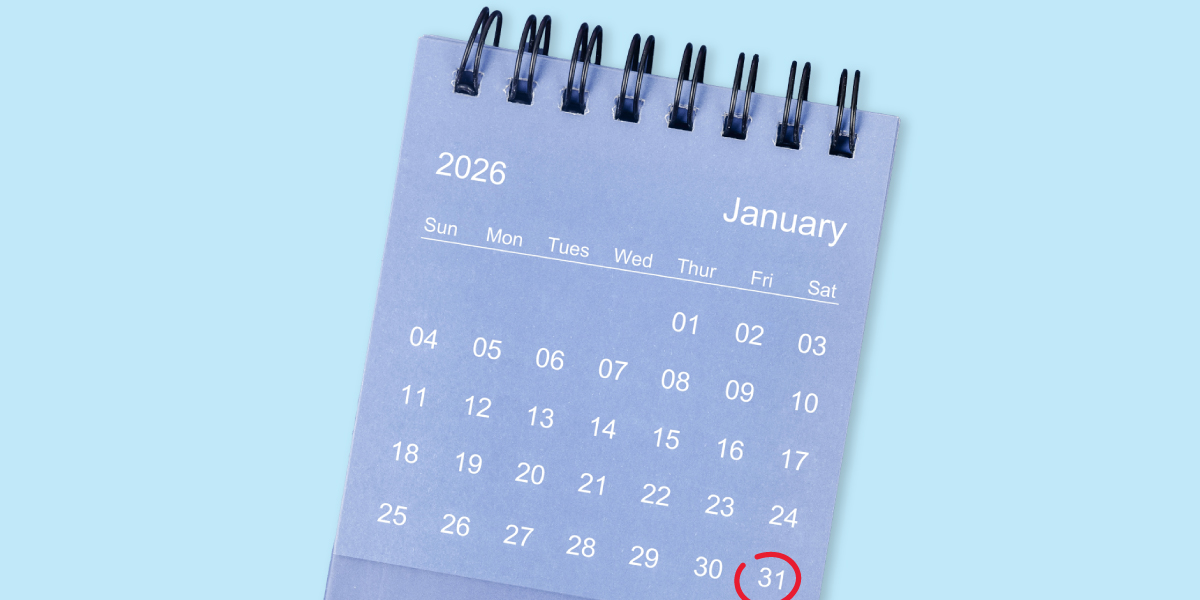
MEMBER EXCLUSIVE
Members can use GoSimpleTax to file to HMRC at a great price and avoid costly accountant fees.
Get started
The next 12 months are looking pretty jam-packed for your finances.
From when the first National Insurance cut kicks in to an earlier than usual Budget and the end of the £2 bus fare cap, there's a lot to remember and prepare for.
Here, Which? has compiled the key dates to mark in your diary to help you keep up.
The new year begins badly for finances with a higher energy price cap.
Ofgem caps what you pay per unit of gas and electricity for standard variable tariffs, which most of us are now on.
The ‘typical’ household will pay £1,928 a year, up 5% from £1,834.
As it’s the cost per unit that’s capped, rather than your overall bill, reducing your use could lessen or even reverse the effects of the increase.
Applications for 15 hours of free childcare a week for two-year-olds open in the new year.
This is the first phase of the expansion of the 30 hours of free childcare a week initiative, announced in the Spring Budget.
From April 2024, working parents of two-year-olds will be able to get 15 hours of free childcare a week. From September 2024, working parents of children aged nine months to two years will get 15 hours of free childcare a week. From September 2025 all eligible working parents of children aged nine months to three years will be able to access 30 free hours a week.
The help will only be offered to households where all adults are working at least 16 hours.
Among the key measures in Jeremy Hunt’s Autumn Statement was the reduction in employees’ National Insurance (NI) contributions (Class 1) from 12% to 10%.
Employees under state pension age pay this on earnings from £12,570 up to £50,270. NI on earnings above this will continue to be charged at 2%. Unusually, the reduced rates take effect on 6 January.
If you’re self-employed, you’ll have to wait until 6 April for similar cuts: Class 2 contributions will be abolished, while Class 4 contributions will be cut from 9% to 8%.
The cuts mean an employee earning £40,000 a year will save £549. Their self-employed counterpart will save £454.
However, the freezing of income tax thresholds until April 2028 means that many will be paying hundreds of pounds more than if these had been increased with inflation.
Those who file self-assessment tax returns online must file their 2022-23 return and pay the tax they owe by midnight on Wednesday 31 January.
If you're self-employed, you will usually be asked to make the first of two payments on account (payments towards your next bill), with the second due by 31 July 2024.

Members can use GoSimpleTax to file to HMRC at a great price and avoid costly accountant fees.
Get startedThe base rate influences how much it costs to borrow and how much you get paid to save. It’s gone up several times this year to 5.25% in a bid to bring down inflation, which has finally begun to fall.
By the time the Bank of England’s monetary policy committee sits for its first meeting of 2024, inflation may have fallen further – meaning the committee could cut the base rate.
That seems unlikely, however, with Bank of England governor Andrew Bailey declaring in November it was ‘far too early’ for rate cuts. Indeed, JP Morgan analysts have predicted the first base rate cut won’t come until the end of 2024.
Savings providers won’t wait, however, and the prospect of cuts has led to the withdrawal of the 6%-plus rates we saw in autumn.
The government has announced that rail fares in England will rise by 4.9% on 3 March.
Annual increases to regulated rail fares (season tickets and most commuter fares) are set by the government. They normally take effect in January and are meant to be linked to the previous July's RPI, which for 2023 came in at 9%.
However, the Department for Transport said price hikes will be below RPI and it has now confirmed the increases will be capped at 4.9% instead. It also announced that future fare changes will now take place in March every year.
The Campaign for Better Transport has called for a rail fare freeze, pointing out that fuel duty has been frozen since 2011-12. It has warned that out of 40 popular commuter routes into London, even another 5.9% rise would see 27 season tickets go above £5,000 and 10 pass the £6,000 mark, with an annual season ticket from Southampton to London costing £7,218.
The Spring Budget will be delivered on 6 March, an earlier date than usual as the last one was delivered by Jeremy Hunt on 15 March 2023, fuelling speculation that the government will call a general election in May.
This update will outline how the economy is doing and forecasts for the year ahead as well as proposed changes to the tax system.
Commentators have speculated that we could see changes to inheritance tax, fuel duty and help for first-time buyers.
Council tax bills will be frozen in Scotland but they are expected to rise across the rest of the UK from April.
The most councils can raise council tax each year in England, without calling a referendum, is 5%. Given the current average annual Band D council tax bill in England for 2023-24 is £2,065, that could mean a £103 increase.
The TV licence fee will rise by £10.50, taking the cost to £169.50.
There will be a new energy price cap too. Energy consultancy Cornwall Insight predicts the cap will fall in April, with a typical bill coming down to £1,660.
Which? has estimated that 8.4 million UK households will face an inflation-linked mid-contract broadband price rise in April 2024, and we're campaigning for this to come to an end.
Regulator Ofcom has proposed a ban on unpredictable broadband and mobile mid-contract price rises, but it won’t be enough to stop the price increases providers have planned for spring.
Use your Isa allowance before the tax year ends on 5 April, or lose it.
Adults are entitled to a £20,000 tax-free allowance every year and children under 18 get £9,000, which can't be rolled over.
The 6 April marks the start of a new tax year 2024-25.
If you have all the information you need it's the first day you can file a 2023-24 tax return.
Tax-free allowances for dividends and capital gains tax are going to be halved again, down to £500 and £3,000 per tax year, respectively.
This makes it more important than ever to hold assets in Isas. Fortunately, rules prohibiting you from paying into more than one Isa of the same type are also being scrapped in April.
Despite the new tax year starting on Saturday 6 April, the planned increases to benefits and the state pension will come into effect on Monday 8 April.
The Chancellor confirmed the state pension will increase by 8.5%, meaning those on the full new state pension will get £221.20 a week (up from £203.85). Those who reached state pension age before April 2016 will get £169.50, up from £156.20.
Various benefits, including Universal Credit and pension credit, will rise by 6.7% in line with CPI in September 2023.
The energy price cap for the third quarter of the year will come into effect.
The typical bill is predicted to fall further to £1,590 from July, providing there are no big changes in the international markets.
Self-employed workers who pay tax through payment on account will have to make their second payment by midnight on 31 July.
The amount you pay is an estimate based on your earnings in 2022-23.
The energy price cap for the final quarter of the year will come into effect.
Which? has a handy energy bill calculator to help you estimate your bills throughout the year.
The September inflation announcement comes out in October and is important as it is used to calculate how much benefits and the state pension will rise by in April.
If you choose to send a paper self-assessment tax return by post, rather than filing it online, you must do so by 31 October.
We normally get another update from the Chancellor on the state of the economy and details of any proposed tax changes.
In 2023, the Autumn Statement was on 22 November.
A government scheme which capped single bus journeys in England at £2 is expected to end in December 2024.
This saves passengers up to £12 per journey for the most expensive routes.
This article has been updated since it was first published. A previous version stated that the most a council could raise council tax in Wales without a referendum was 5%. This was incorrect, only England has this cap.